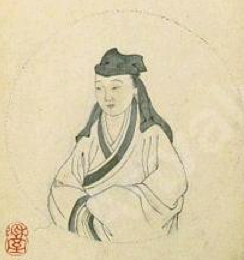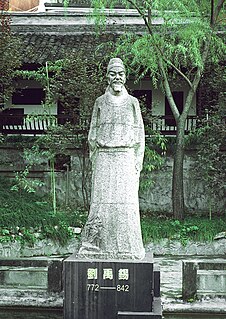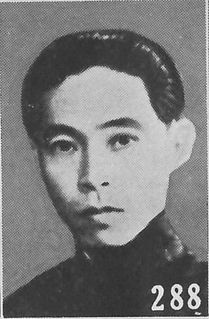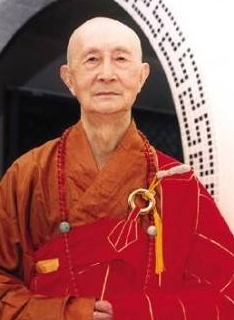 W
WBao Tong is a Chinese writer and activist. He was former Director of the Office of Political Reform of the Central Committee of the Communist Party of China and the Policy Secretary of Zhao Ziyang, Chinese Premier from 1980 to 1987 and CPC General Secretary from 1987 to 1989. He was also Director of the Drafting Committee for the CPC 13th Party Congresses, known for its strong support for market reform and opening up under Deng Xiaoping. Prior to this, he was a committee member and then Deputy Director of the Chinese State Commission for Economic Reform.
 W
WShiing-Shen Chern was a Chinese-American mathematician and poet. He made fundamental contributions to differential geometry and topology. He has been called the "father of modern differential geometry" and is widely regarded as a leader in geometry and one of the greatest mathematicians of the twentieth century, winning numerous awards and recognition including the Wolf Prize and the inaugural Shaw Prize. In memory of Shiing-Shen Chern, the International Mathematical Union established the Chern Medal in 2010 to recognize "an individual whose accomplishments warrant the highest level of recognition for outstanding achievements in the field of mathematics".
 W
WFeng Zikai was an influential Chinese painter, pioneering manhua (漫画) artist, essayist, and lay Buddhist of twentieth century China. Born just after the First Sino-Japanese War (1894-1895) and passing away just before the end of the Cultural Revolution (1966-1976), he lived through much of the political and socio-economic turmoil that arose during the birth of Modern China. Much of his literary and artistic work comments on and records the relationship between the changing political landscape and the daily lives of ordinary people. Although he is most famous for his paintings depicting children and the multi-volume collection of Buddhist-inspired art, Paintings for the Preservation of Life (护生画集), Feng Zikai was a prolific artist, writer, and intellectual, who made strides in the fields of music, art, literature, philosophy, and translation.
 W
WLouis Cha Leung-yung, better known by his pen name Jin Yong, pronounced "Gum Yoong" in Cantonese, was a Chinese wuxia novelist and essayist who co-founded the Hong Kong daily newspaper Ming Pao in 1959 and served as its first editor-in-chief. He was Hong Kong's most famous writer.
 W
WLi Shanlan was a Chinese mathematician of the Qing Dynasty.
 W
WLiu Rushi, also known as Yang Ai (杨爱), Liu Shi (柳是), Liu Yin (柳隐) and Yang Yin (杨隐),Yang Yinlian (杨影怜), Hedong Jun (河东君), was a Chinese notable courtesan and poet in the late Ming dynasty who married Qian Qianyi at the age of 25. Qian was an official and poet. She committed suicide after her husband died. She famously exchanged verses with Chen Zilong, and was noted for her painting.
 W
WLiu Yuxi (772–842) was a Chinese poet, philosopher, and essayist, active during the Tang Dynasty.
 W
WLü Liuliang was a Han Chinese poet and author from Tongxiang, Zhejiang province. He was born under the Ming Dynasty but died under the Manchu Qing Dynasty.
 W
WShen Dehong, known by the pen name of Mao Dun, was a Chinese essayist, journalist, novelist, and playwright. A 20th-century Chinese novelist, cultural critic, and the Minister of Culture (1949–65), he is one of the most celebrated left-wing realist novelists of modern China. His most famous works are Ziye, a novel depicting life in cosmopolitan Shanghai, and Spring Silkworms. He also wrote many short stories.
 W
WTaixu, was a Buddhist modernist, activist and thinker who advocated the reform and renewal of Chinese Buddhism.
 W
WTan Qixiang was a Chinese geographer and historian who is considered a founder of the field of historical geography in Modern China. His magnum opus, the eight-volume The Historical Atlas of China, was published between 1982 and 1988. He was elected to the Chinese Academy of Sciences in 1981.
 W
WWang Huiwu was a social reformer, a Communist Party of China (CCP) women's organizer, as well as a proponent of women's emancipation. She ran the first Communist-sponsored journal which was written and edited mostly by women. Her husband was Li Da (1890–1966) one of the founders of CCP and a propagator of Marxist Philosophy.
 W
WWang Guowei or Wang Kuo-wei, courtesy name Jing'an (靜安) or Boyu (伯隅), was a Chinese historian and poet. A versatile and original scholar, he made important contributions to the studies of ancient history, epigraphy, philology, vernacular literature and literary theory.
 W
WXu Jingcheng was a Chinese diplomat and Qing politician supportive of the Hundred Days' Reform. He was envoy to Belgium, France, Italy, Russia, Austria, the Netherlands, and Germany for the Qing imperial court and led reforms in modernizing China's railways and public works. As a modernizer and diplomat, he protested the breaches of international law in 1900 as one of the five ministers executed during the Boxer Rebellion. In Article IIa of the Boxer Protocol of 1901, the Eight-Nation Alliance that had provided military forces successfully pressed for the rehabilitation of Xu Jingcheng by an Imperial Edict of the Qing government:Imperial Edict of the 13th February last rehabilitated the memories of Hsu Yung-yi, President of the Board of War; Li Shan, President of the Board of Works; Hsu Ching Cheng, Senior VicePresident of the Board of Civil Office; Lien Yuan, Vice-Chancellor of the Grand Council; and Yuan Chang, Vice-President of the Court of Sacrifices, who had been put to death for having protested against the outrageous breaches of international law of last year.
 W
WChanghsu Hamilton Hsu, original name Xu Zhangxu, courtesy names Yousen and later Zhimo, which he went by, was an early 20th-century romantic Chinese poet who strove to loosen Chinese poetry from its traditional forms and to reshape it under the influences of Western poetry and the vernacular Chinese language. He is considered one of the most important figures of modern Chinese poetry.
 W
W(Master) Yin Shun was a well-known Buddhist monk and scholar in the tradition of Chinese Mahayana Buddhism. Though he was particularly trained in the Three Treatise school, he was an advocate of the One Vehicle as the ultimate and universal perspective of Buddhahood for all, and as such included all schools of Buddha Dharma, including the Five Vehicles and the Three Vehicles, within the meaning of the Mahayana as the One Vehicle. Yin Shun's research helped bring forth the ideal of "Humanistic" (human-realm) Buddhism, a leading mainstream Buddhist philosophy studied and upheld by many practitioners. His work also regenerated the interests in the long-ignored Āgamas among Chinese Buddhist society and his ideas are echoed by Theravadin teacher Bhikkhu Bodhi. As a contemporary master, he was most popularly known as the mentor of Cheng Yen, the founder of Tzu-Chi Buddhist Foundation, as well as the teacher to several other prominent monastics.
 W
WZha Shenxing was a Chinese poet in the early Qing dynasty.